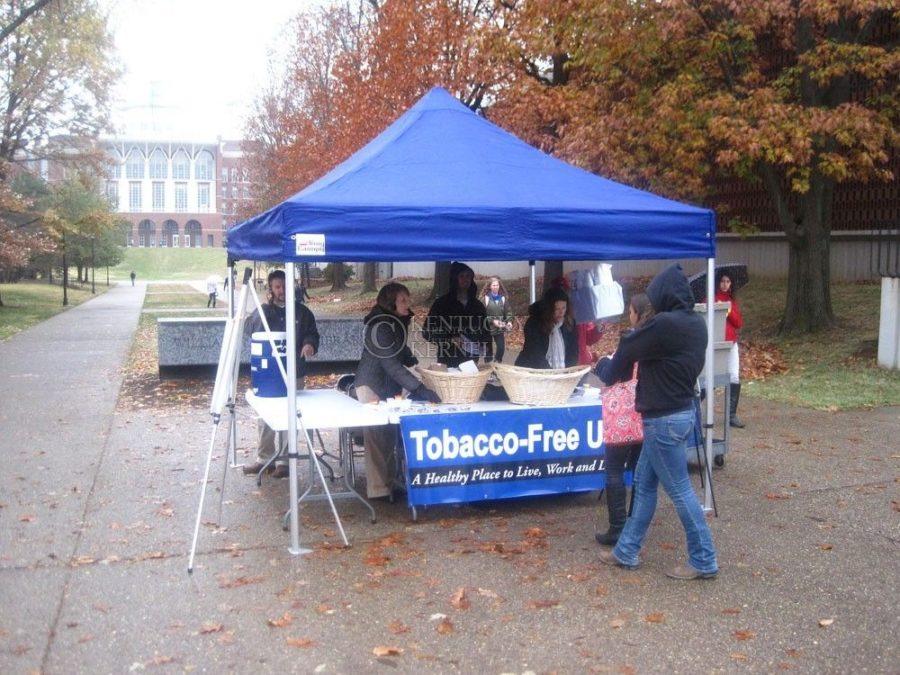Event teaches how to avoid quitting ‘cold turkey’ before enjoying the holidays
November 19, 2010
by David Jarvis
Although the holiday associated with turkey is only a week away, going cold turkey isn’t always the best option.
In a combined effort from UK HealthCare, UK Health and Wellness, the Counseling Center and University Health Services hosted The Great American Smoke Out at three locations across campus Thursday afternoon.
Information about how to quit, and the best options for quitting were available at the various locations along with hot chocolate, cold turkey sandwiches and s’mores.
From 11 a.m. to 2 p.m., representatives from student organizations as well as University Health Services and the Counseling Center faculty handed out free information, food and also spoke with those interested in quitting.
“We have made a lot of progress on the program and services offered for those trying to quit,” said Fadyia Lowe, Health Education coordinator and tobacco treatment specialist. “We don’t expect you to quit cold turkey and without help.”
Quitting “cold turkey” references quitting tobacco without treatment or nicotine replacement therapy.
“Sometimes students think they will just pick up smoking during college then quit when they graduate,” said Joanne Brown, a tobacco treatment specialist with University Health Services. “We realize that tobacco is an addiction, and we are trying to change the culture.”
The program advises those trying to quit not to attempt without help.
“Only about 5 percent of those who quit cold turkey remain tobacco free,” Brown said.
The program has seen a great response from students and faculty, Lowe said.
“I think the majority of students, faculty and staff are happy about the policy,” said Dr. Federico Aldarondo, a psychologist and associate director of the Counseling Center.
“I hear more about people who are angry when they see violators and they don’t see any immediate consequences,” Aldarondo said.
While many people respect and follow the smoking ban on UK’s campus, some still ignore it.
“I personally see fewer people smoking on campus, although we still know there are violators,” Aldarondo said.
A new student organization was also involved in the effort. The Student Wellness Ambassadors helped distribute information and food during Thursday’s program.
The Student Wellness Ambassadors are part a new program, which stemmed from The College Alcohol Use Student Educators, which focused solely on alcohol abuse.
“We help educate students about using more than just alcohol and tobacco, but over-the-counter medications as well as prescription drugs such as Adderall,” said Nicole Hayes, president of Student Wellness Ambassadors.
Many resources are available for students and faculty interested in quitting. Individual and group tobacco treatment programs are available to students and faculty for free.
“We have a tobacco treatment specialist here on campus who can coach individually through the quitting process in conjunction with NRTs as well as a phone-based coaching program where the individual is assigned a health coach and they assist them in the quitting process,” said Jody Ensman, manager of the Health and Wellness Program for faculty and staff at UK.
For more information, visit, (http://uky.edu/tobaccofree), University Health Services or the UK Counseling Center.
































































































































































